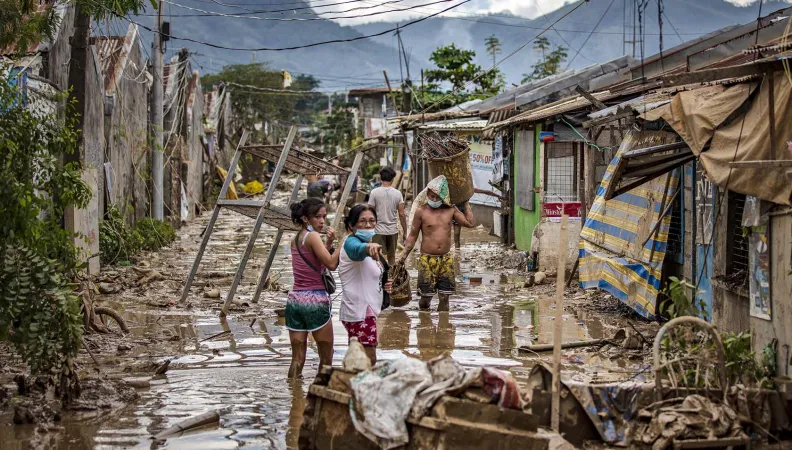Share the page
Climate Finance: Helping the Philippines to Cope with Climate Change
Published on

The Philippines is one of the countries most exposed to the consequences of climate change. In response, the government has set ambitious targets through its Nationally Determined Contribution (NDC). But to sustain climate action, mobilizing external financing is essential.
Ranked 4th among the countries most affected by extreme weather events over the past 20 years, the Philippines are increasingly exposed to cyclones, floods, landslides, severe droughts and heat waves. Up to 60% of the surface area and 74% of its 108 million inhabitants will be affected. According to the 6th IPCC assessment report, released in 2021, extreme weather events will continue to increase in frequency and intensity until the end of the century.
The consequences of these extreme weather events could have a catastrophic impact on the economy, incurring losses that could reach 35% of GDP by 2048. For instance, the availability of water resources, crop cycles and rising energy demand (in particular to fight against heat episodes) will all be affected. Furthermore, the poorest populations are the most likely to be adversely affected, exacerbating existing inequalities in the country.
It is against this backdrop that the Government of the Philippines affirmed its commitment to sustainable and inclusive economic development, by submitting its first NDC to the United Nations in April 2021. Mobilizing external financing will be critical to ensuring that the Philippines can enact the reforms that will enable the country to fulfil its NDC objectives.
Adaption to climate change: a key focus for AFD
Since the Paris Agreement, AFD Group has provided 30 billion euros in climate financing, including 7 billion euros for adaptation.
In the Philippines, climate action is at the core of AFD activities: “Through a €250 million adaptation program loan mobilized at the end of 2021, AFD Group implements France's enhanced objective of providing €6 billion of climate financing per year, one-third of which is devoted to adaptation”, said Laurent Klein, AFD Country Director for the Philippines.
How does AFD act? “One of the powerful tools that we are using to do so is policy-based lending to support policy reforms and/or institutional changes in a particular sector or subsector. It is a transformative financial instrument as it encourages intra- and inter-ministerial coordination, promotes a multi-stakeholder dialogue to develop sustainable public policies and makes the most of one key advantage of bilateral cooperation: peer exchange”.
Going further with a new climate-focused policy-based loan
In order to go even further in supporting the Philippines to implement its NDC, AFD recently approved a €150 million climate-focused policy-based loan. The loan will support the country's efforts to tackle climate, change adaptation and mitigation under the Paris Agreement.
This new program targets policy reforms and supports the country as it builds its planning, financing, and institutional systems, in order to scale up climate action. It will also help to build up the resilience of farming and fishing communities, helping them to cope with the worsening impact of climate change. The project will also reduce greenhouse gas emissions through the deployment of renewable energy, energy efficiency and low-carbon transport. “Our development programs combine policy-based lending and investment loans (project-based lending) together with technical assistance and peer exchange, providing an integrated solution for a country willing to scale up its climate action” added M. Klein. The program has been prepared jointly and is co-financed with the Asian Development Bank.
